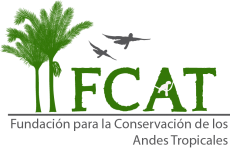Spring 2018
Spring has sprung, and the lab has some exciting news – two of our Ph.D. candidates, Erik Enbody and Brock Geary, are about to fledge!
Erik Enbody is preparing to defend his dissertation in March 2018 and, following his defense, he will begin a postdoctoral research position in Dr. Leif Andersson’s lab at Uppsala University in Sweden. Since the last update, Erik coauthored a meta-analysis on extra pair paternity rates across Malurus fairywrens that was recently published in Molecular Ecology (Brouwer et al. 2017), submitted a manuscript, and has been working through a mountain of genomics data on white-shouldered fairywrens.
Brock Geary will defend his dissertation in April 2018, and following his defense, he will begin a postdoctoral research position in Dr. Paul Leberg’s lab at the University of Louisiana at Lafayette where he will continue his work on the foraging ecology of brown pelicans in the Gulf. Since the last update, Brock has submitted a manuscript and worked through thousands of GPS locations to map brown pelican foraging ecology in the Gulf of Mexico.
Zoë Diaz-Martin had a productive fall semester teaching the ecology lab and making progress with lab work. She also continued a conservation oriented project that bolsters local conservation efforts in northwest Ecuador. She looks forward to traveling this semester to Dr. Paul Gugger’s lab at the University of Maryland to begin her genomic work of Oenocarpus bataua.
John Jones spent most of fall indoors, revamping his dissertation project to focus now on behavioral endocrinology and multimodal signals in female white shouldered fairywrens. He is preparing to head back to Papua New Guinea in April for another field season. He also published the last golden-winged warbler paper to come out of his master’s study population in Wilson Journal of Ornithology (Tisdale and Jones et al. 2018), as well as collaborative paper on migratory connectivity in PNAS (Kramer et al. 2018) .
Sarah Khalil spent the past semester developing her thesis ideas, focusing on the evolution and mechanisms of carotenoid-based sexual signals. She travelled back to Brisbane, Australia for a quick trip in November to collect some more samples during the breeding season, and also presented preliminary results from her 2017 field season at the meeting for the Society of Integrative and Comparative Biology in January. She is preparing for her next field season to Australia in May to collect more data, as well as to lead the new cohort of NSF IRES undergraduate students.
Kaushik Narasimhan is on the verge of completing his first year in the PhD program at Tulane. He led a team of undergraduate students that gathered data on frugivory at palm trees from motion-activated camera traps, and is preparing for pilot fieldwork related to GPS tracking of umbrellabirds over the summer in Ecuador.
Jordan Karubian received a grant from the Morris Animal Foundation for research on how lead impacts mockingbird behavior, with collaborators Dr. Howard Mielke from the Tulane School of Medicine and Dr. Renata Ribeiro from Tulane’s Ecology and Evolutionary Biology Department. He has published new articles in Acta Oecologica (with lab alums Kym Ottewell and Luke Browne, Ottewell et al. 2017), Behavioural Processes (with lab alum Jenny Hazlehurst, in press), Journal of Tropical Ecology (with lab alums Scott Walter and Luke Browne, as well as members of our partner organization FCAT, Walter et al. 2017), Molecular Ecology (with Erik Enbody, Brouwer et al. 2017), and New Phytologist (with lab alum Luke Browne, accepted).
Read More


